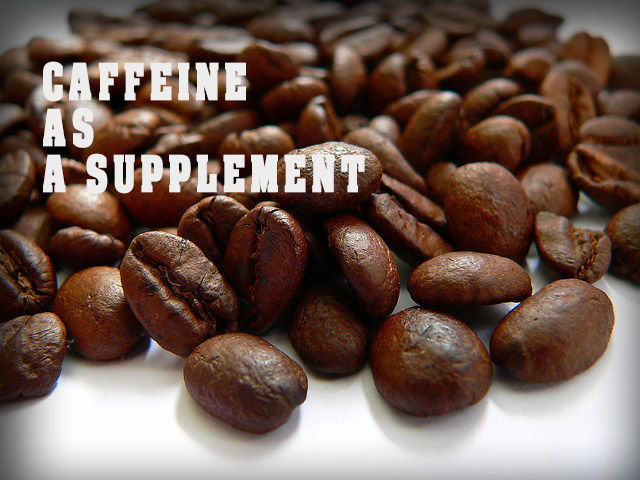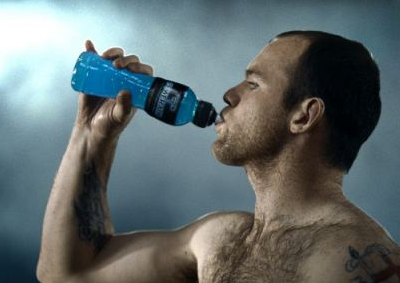Natural energy supplements
Nearly everyone on the planet wants to be healthy and full of energy. If you’re tired from lack of sleep or just not feeling the energy you’d like to feel, maybe you’d like to try something natural that will help bring you back to normal again. But what about the side-effects?
Today’s natural energy supplements fill the shelves almost everywhere, but if you’re concerned about how healthy they are for you and what sort of side effects you might have from taking them, you’ve come to the right place. Here’s our list of what you should look out for when you’re choosing the best natural energy supplements for your body:
Guarana
Guarana is a climbing plant native to Brazil and the Amazon basin. The seeds from its fruit contain the stimulant guaranine, which is often mistaken for caffeine, along with large amounts of theophylline, a tannic acid.
Guarana appears to be one of the best natural energy supplements for dieters as it seems to release and then use energy primarily from the body’s fat cells.
How safe is it? People with cardiovascular disease are cautioned to be careful when taking guarana and women who are pregnant or lactating should avoid it entirely. Although most research doesn’t indicate any adverse reactions to taking it, there may be some side effects similar to caffeine including insomnia, excessive nervousness and other health risks to people who are sensitive to caffeine.
Ginseng
Ginseng is one of today’s top natural energy supplements and has been used in China for many thousands of years and is credited with promoting energy, strength and longevity. Some studies have reported that taking ginseng boosts the body’s immune system. Other studies have shown that it also lowers blood sugar levels. There is also early evidence that ginseng can temporarily improve your learning and concentration.
Ginseng has also been found to boost endurance and improve your mood. It’s also found to be a help in combating fatigue, treating cancer, heart disease, high blood pressure, menopausal symptoms, erectile dysfunction, and some other conditions.
How safe is it? Ginseng is generally considered safe for just about everybody. Some side effects have been reported, including headaches, restlessness, difficulty sleeping, elevated heart rate and some women have experienced swollen breasts and vaginal bleeding when taking ginseng.
Coenzyme Q10
Coenzyme Q10 is also one of our top natural energy supplements. It’s produced by the body and is essential for it to function normally. CoQ10 recharges the body’s energy system by enabling the heart muscles to pump blood more efficiently, while at the same time cleaning up destructive free radicals that are by-products of the energy production process.
Some of the health benefits that doctors believe people are able to get from taking coenzyme Q10 include the following:
Enhancing the function of our immune system
Stabilizing blood sugar levels of diabetics
Slowing down the progression of dementia
Treating or preventing migraines
Helping treat high blood pressure
Helping treat heart disease
Reducing high cholesterol levels in the blood
Assisting in the treatment of cancer
Protecting organs from toxic chemotherapy drugs
Helping treat gum disease
How safe is it? CoQ10 is generally considered safe to consume. Some people have reported mild insomnia and research has reported elevated levels of liver enzymes in people taking high doses over long periods of time. Other side effects that have been reported include dizziness, irritability, heartburn, fatigue, sensitivity to light, headaches, nausea, rashes, nausea, and upper abdominal pains.
Creatine
Creatine is an amino acid that’s also one of our natural energy supplements. It’s found in fish and meats and is also made by the human body. It does deliver energy as needed when the body converts it into phosphocreatine when it is then stored in muscles and the brain.
Most research today concludes that creatine is effective in helping people have more energy and resistance to fatigue during activities that require high intensity and explosive energy levels of energy.
How safe is it? Creatine has been researched by sports enthusiasts world-wide for years and there’s no evidence it’s not safe to consume. There have been anecdotal reports of heart problems, dehydration, diarrhea, kidney damage, and muscle cramps, but there’s been no solid evidence to back up these reports.
Spirulina
Thousands of years ago the Aztec Indians discovered that the blue-green algae known as spirulina contained large amounts of protein and they used it in their diet to add nourishment and energy. Compared to most other sea vegetables, spirulina is easier to digest and its nutrients are more easily absorbed into the bloodstream. Spirulina is also a good source of vitamin B12 in addition to other vitamins and minerals.
The protein in spirulina is equivalent to the protein derived from meat, dairy products and eggs other than it having somewhat reduced amounts of a few amino acids, and is another on our list of today’s best natural energy supplements.
How safe is it? Although most reports say spirulina is safe, there have been some side effects reported. These include a slight fever because of the body’s requirement to burn extra protein; some slight dizziness, thirst, constipation, slight body rash, skin itch and stomach ache.
Gotu Kola
Gotu Kola is an herb native to the wetlands of Asia that’s also been used for thousands of years to combat anxiety and fatigue. Many herbalists like gotu kola as an energy enhancement because it lessens depression and fatigue without the stimulant effects of caffeine. Gotu kola is often confused with the kola nut but is different in that it also tends to aid the symptoms of insomnia because it doesn’t have kola nut’s stimulant properties.
How safe is it? Do not take gotu kola if you are allergic to any of its ingredients or are pregnant. Also, taking gotu kola is not recommended if you are taking prescription or nonprescription medicines, dietary supplements or herbal preparations or if you have a history of epilepsy or diabetes.
What’s right for you?
All of these natural energy supplements are reputed to be great for increasing your energy levels, and they can also make your healthier as well. However, they can also have side effects that you don’t expect. Choose your natural energy supplements wisely and hopefully you’ll get the healthy energy boost you’ve been looking for without having to resort to more harsh prescription medications.






